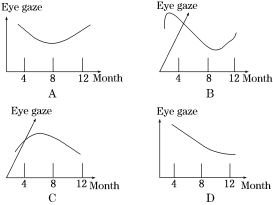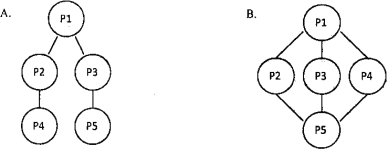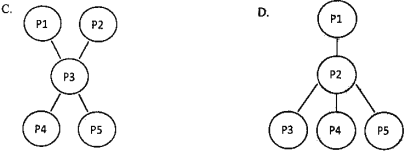题目内容
【题目】阅读理解。

Babies don't learn to talk just from hearing sounds. They are lipreaders too. It happens during the stage when a baby's babbling (咿呀声) gradually changes from unclear voices into that first “mama” or “dada”. The baby in order to do like you has to figure out how to shape their lips to make that particular sound they are hearing, according to developmental psychologist David Lewkowicz of Florida Atlantic University, who led the study.
Apparently it doesn't take them too long to absorb the movements that match basic sounds. By their first birthdays, babies start changing back to look you in the eye again. It offers more evidence that quality facetime with babies is very important for speech development more than, say, turning on the latest baby DVD.
But Lewkowicz went a step further. He and his student Amy HansenTift tested nearly 180 babies, groups of them at ages 4,6,8,10 and 12 months. How? They showed videos of a woman speaking in English or Spanish to babies of English speakers. They found that when the speaker used English, the 4montholds gazed mostly into her eyes. The 6montholds spent equal amounts of time looking at the eyes and the mouth. The 8and 10montholds studied mostly the mouth. At 12 months, attention started changing back toward the speaker's eyes.
But what happened when these babies accustomed to English heard Spanish? The 12montholds studied the mouth longer, just like younger babies. They needed the extra information to recognize the unfamiliar sounds. That fits with research into bilingualism (双语) that shows babies' brains adjust themselves to distinguishing the sounds of their native language over other languages in the first year of life.
The continued lipreading shows the 1yearolds clearly still are fit for learning. Babies are so hard to study that this is “a fairly heroic data set”, says Duke University cognitive neuroscientist Greg Appelbaum, who found the research so fascinating that he wants to know more.
【1】According to the first paragraph, babies________.
A.might get its voice “mama” by lipreading
B.learn to talk just from hearing the sounds
C.like to figure out how to shape their lips
D.communicate with parents through gestures
【2】What is necessary in developing babies' speech according to Lewkowicz?
A.Playing baby DVD nearby.
B.Teaching babies to read English.
C.Speaking with babies face to face.
D.Speaking different languages in front of babies.
【3】Which of the following shows the right change of babies' eye gaze according to the text?

【4】What would be the best title of the text?
A.Babies Have Different Methods to Talk
B.Babies Try Lipreading in Learning to Talk
C.Babies Are Suitable to Learn Two Languages
D.Babies Can Easily Accept Foreign Language
【答案】
【1】A
【2】C
【3】A
【4】B
【解析】
试题解析:
【1】细节理解题。根据第一段第二、三句可知,婴儿可能会通过读唇的方式发出“mama”的声音。故答案选A。
【2】推理判断题。根据第一段最后一句“The baby in order to do ...who led the study.”及第二段第三句“It offers more evidence ...important for speech development”可推知,在婴儿的语言发展阶段,跟婴儿面对面讲话是有必要的。故答案选C。
【3】细节理解题。根据第三段最后四句“They found that ...the speaker's eyes.”并结合所给选项可知,A项坐标图符合文中的描述。故答案选A。
【4】标题归纳题。纵观全文,文章主要介绍了一项科学发现:婴儿不仅仅通过听声,还通过观察说话者的口型来学习说话。B项概括了文章主旨。故答案选B。





